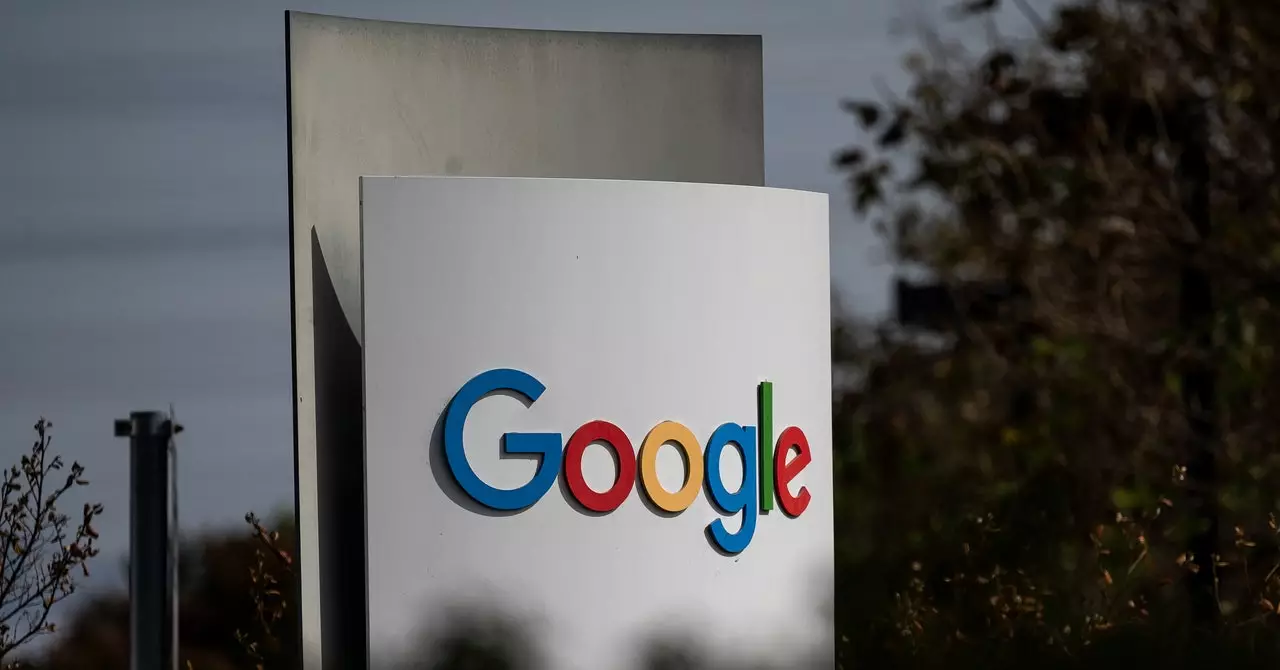As the digital world advances, artificial intelligence is becoming increasingly integrated into our daily functions. Google’s Gemini Assistant chatbot is positioned as a promising contender in the AI space, aiming to rival OpenAI’s ChatGPT. However, its journey to broader acceptance will be fraught with hurdles, particularly given the unique challenges posed by regulatory scrutiny and market competition.
In recent legal proceedings, Google proposed a series of restrictions concerning the distribution of the Gemini Assistant. This strategic move appears designed to mitigate the impact of an impending ruling from the U.S. Justice Department regarding the company’s allegedly monopolistic practices. The request was for Google to create more open conditions for its partners, offering flexibility in default search provider selections without enforcing overt dominance. The current landscape suggests that if Gemini is to thrive, it must do so independently, without the extensive promotional alliances that historically buoyed Google’s search engine.
The courtroom drama surrounding Google has brought to light serious concerns regarding the company’s market position. Notably, U.S. District Judge Amit Mehta previously ruled against Google concerning antitrust violations linked to its agreements that made its search engine the default option on various devices. Judge Mehta concluded that these arrangements gave Google an unprecedented hold on both traditional search and search advertisements, enabling continued growth and profitability with minimal competition.
His judicial inquiry raised essential questions about whether or not Google could transfer its market dominance from conventional search engines to newer technologies such as AI chatbots. As the hearing dates draw near, analysts, investors, and competitors alike are anticipating implications that could reshape the industry. The scheduled hearings in April will explore potential penalties, and the ramifications could linger long after any verdict is delivered.
Despite these legal challenges, investors remain optimistic about Google’s long-term prospects. Alphabet, Google’s parent company, has seen significant stock gains, suggesting that the market holds confidence in its ability to navigate through the turbulent waters of legal scrutiny. The surge of over 37% in shares could signify faith in the company’s strategic initiatives and potential resilience against regulatory pressures.
Google’s assertion during the proceedings that its dominance arises from providing a superior user experience successfully underscores its longstanding commitment to innovation. Yet, the Justice Department’s position—that users predominantly stick with their default options—indicates that the landscape for default settings may be shifting. With pressure mounting to diversify the search arena, Google’s fate hinges on its ability to adapt and pivot technologies like Gemini into competitive offerings.
Future Implications for Gemini and AI Collaboration
While Google continues its legal maneuvers, the implications for Gemini’s development and deployment cannot be overlooked. Although the company has indicated that it intends to continue striking deals to promote its AI chatbot, any such agreements will need to comply with the proposed restrictions that prevent it from mandating promotions tied to its other services.
Additionally, the anticipated constraints on partnerships could open the door for a broader range of AI players to vie for market share. The ability for competitors like OpenAI to establish collaborations without the overshadowing presence of Google could shift the dynamics of user acquisition in the burgeoning AI space. Such a transformation may democratize the AI landscape, ushering in an era where innovative solutions attract users rather than existing alliances.
As Google stands at a crossroads, it faces profound questions about its future in the AI arena, particularly concerning the Gemini Assistant. The varying factors—from legal implications and market dynamics to investor sentiments—will shape its journey ahead. It will be crucial for Google to balance its ambitious vision for Gemini with compliance to regulatory expectations. The outcome of the upcoming hearings may prove pivotal, as the trajectory for Gemini and its potential to outshine competitors remains intriguingly uncertain. Ultimately, Google must find a way to sustain relevance and responsiveness amidst an ever-evolving competitive landscape, lest it risk losing its edge in the AI revolution.

